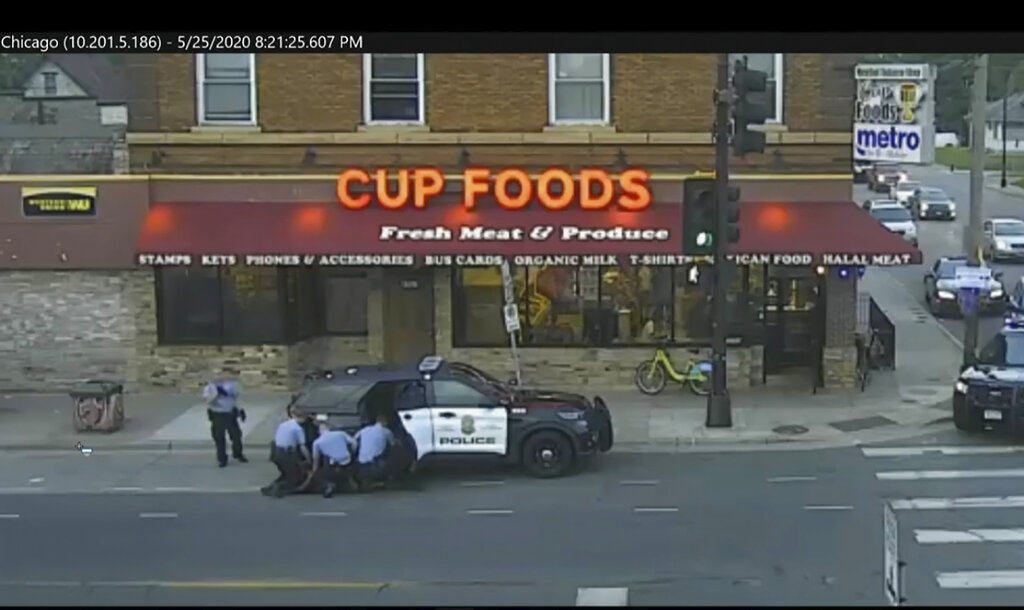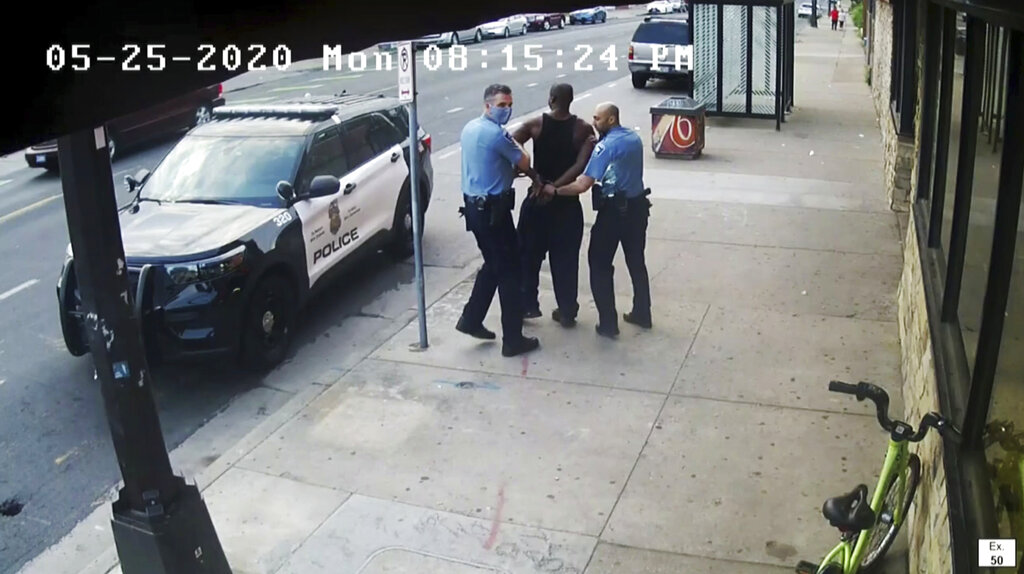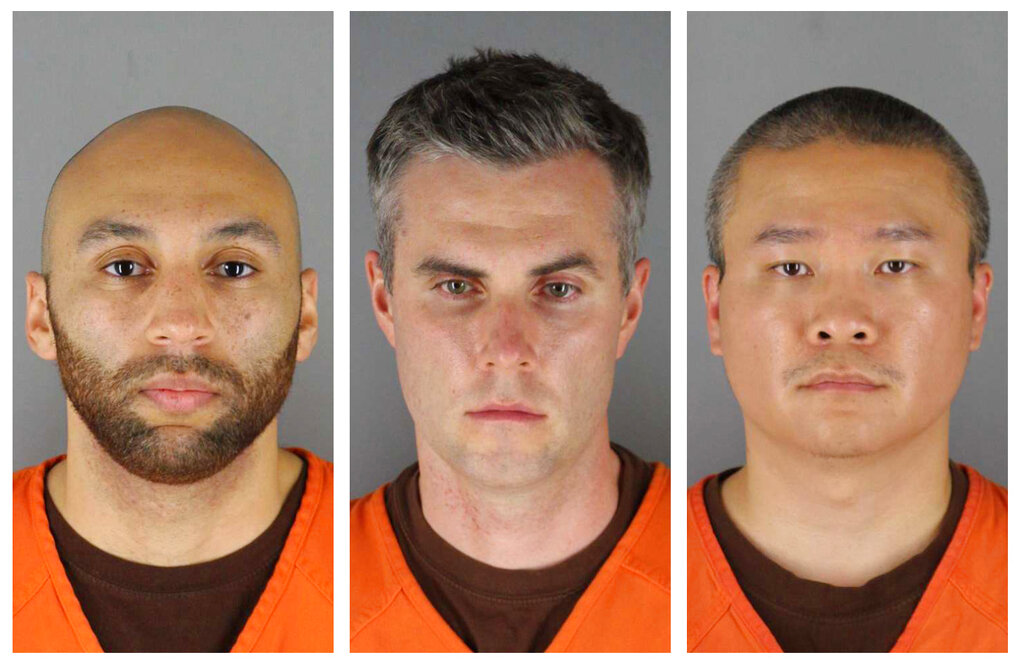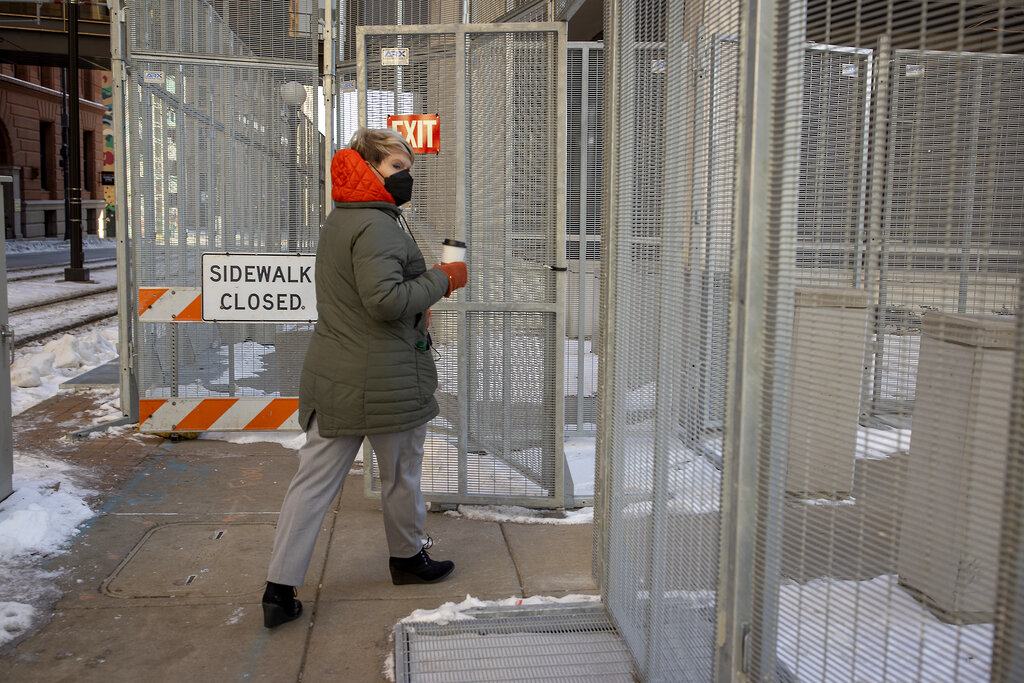Prosecutor: 3 officers stood by as Derek Chauvin killed George Floyd
ST. PAUL, Minn. (AP) — Three former Minneapolis police officers charged with violating George Floyd’s civil rights ignored their extensive training and did nothing to save his life as fellow Officer Derek Chauvin pinned Floyd’s neck under his knee and Floyd gasped for air, a prosecutor told jurors Monday as the federal trial began.
“For second after second, minute after minute, these three CPR-trained defendants stood or knelt next to officer Chauvin as he slowly killed George Floyd right in front of them,” prosecutor Samantha Trepel said during opening statements in the trial of J. Alexander Kueng, Thomas Lane and Tou Thao, who are broadly charged with depriving Floyd of his civil rights while acting under government authority. “They chose not to protect George Floyd, the man they had handcuffed and placed in their custody.”
Floyd died on May 25, 2020, after Chauvin pressed him to the ground with his knee on Floyd’s neck for 9 1/2 minutes while the 46-year-old Black man was facedown, handcuffed and gasping for air. Kueng knelt on Floyd’s back and Lane held down his legs. Thao kept bystanders from intervening in the videotaped killing that triggered worldwide protests, violence and a reexamination of racism and policing.
“They used force, rather than stopping force … they just left Mr. Floyd under the weight of their knees” Trepel said of the officers.
“We will ask you to hold these men accountable for choosing to do nothing and watch a man die,” she said.
Defense attorneys were giving opening statements later Monday.
Kueng, who is Black; Lane, who is white; and Thao, who is Hmong American, are all charged for failing to provide Floyd with medical care. Thao and Kueng face an additional count for failing to stop Chauvin, who was convicted of murder and manslaughter in state court last year. Both counts allege the officers’ actions resulted in Floyd’s death.
Legal experts say prosecutors must prove Kueng, Lane and Thao willfully violated Floyd’s constitutional rights, while defense attorneys are likely to blame Chauvin for Floyd’s murder.
Trepel said videos will show Thao stood directly next to Chauvin, but instead of intervening, he taunted Floyd for using drugs, telling bystanders, “This is why you don’t” use drugs.
She said Kueng “never once” told Chauvin to get off Floyd, even after Floyd stopped struggling and even after Kueng twice could not find a pulse. Instead, she said, Keung remained kneeling on Floyd.
Lane asked if they should roll Floyd onto his side — something all of the officers were trained to do — but Kueng shot down Lane’s question and said, “No, just leave him,” and Chauvin agreed, Trepel said.
Last week, 18 people were swiftly chosen for the jury; 12 will deliberate and six will be alternates. Two of the jurors — one expected to deliberate and one alternate — appear to be of Asian descent. The rest appear to be white. The jurors include people from the Twin Cities area, the suburbs and southern Minnesota. The court declined to provide demographic information.
Federal prosecutions of officers involved in on-duty killings are rare. Prosecutors face a high legal standard to show that an officer willfully deprived someone of their constitutional rights. Essentially, prosecutors must prove that the officers knew what they were doing was wrong, but did it anyway.
U.S. District Judge Magnuson told jurors that the trial could last four weeks. It’s not known whether any of the three officers will testify. It’s also not clear whether Chauvin will testify, though many experts who spoke to The Associated Press believe he won’t.
Lane, Kueng and Thao also face a separate state trial in June on charges they aided and abetted both murder and manslaughter.
Associated Press writer Tammy Webber contributed from Fenton, Michigan.














